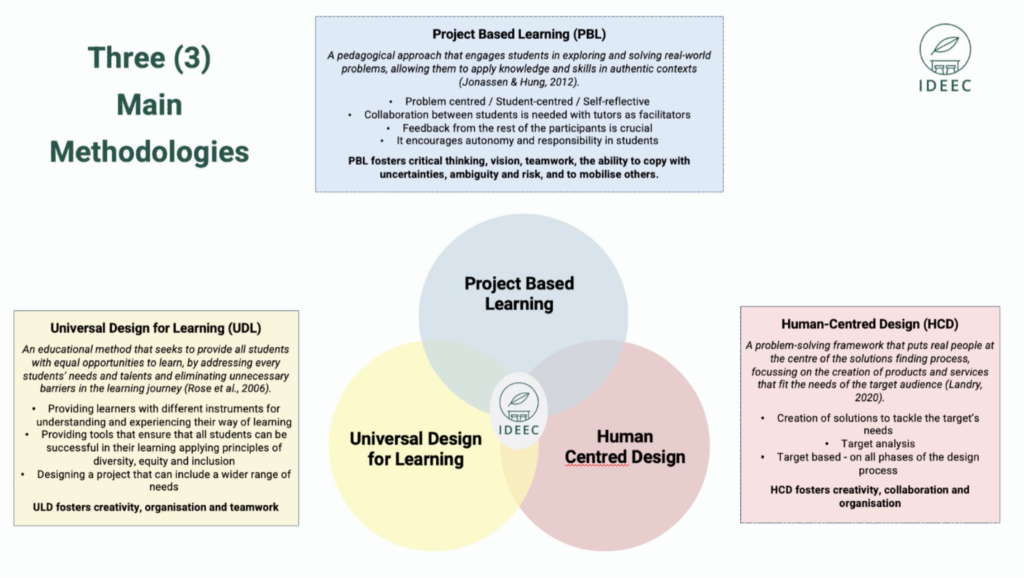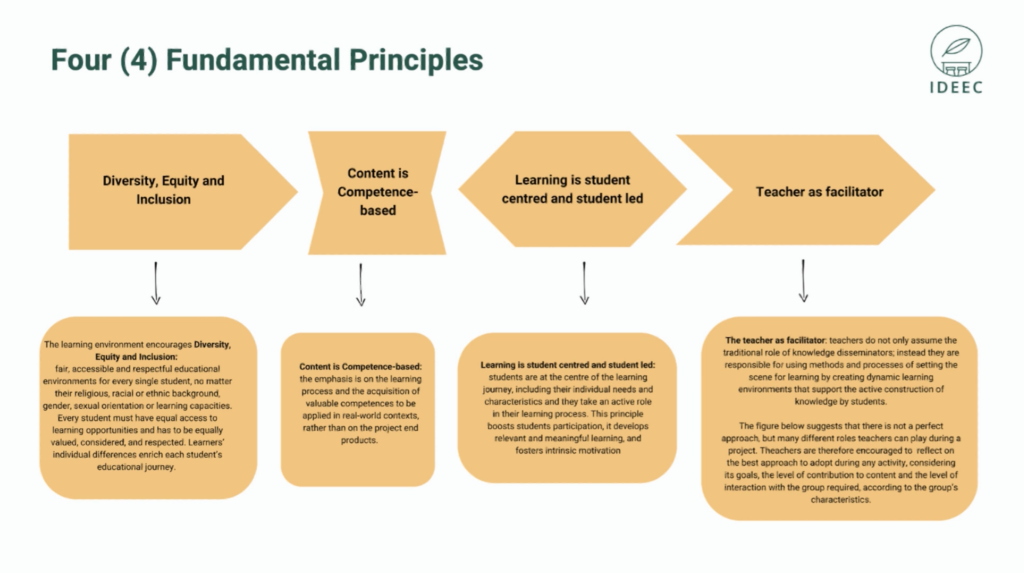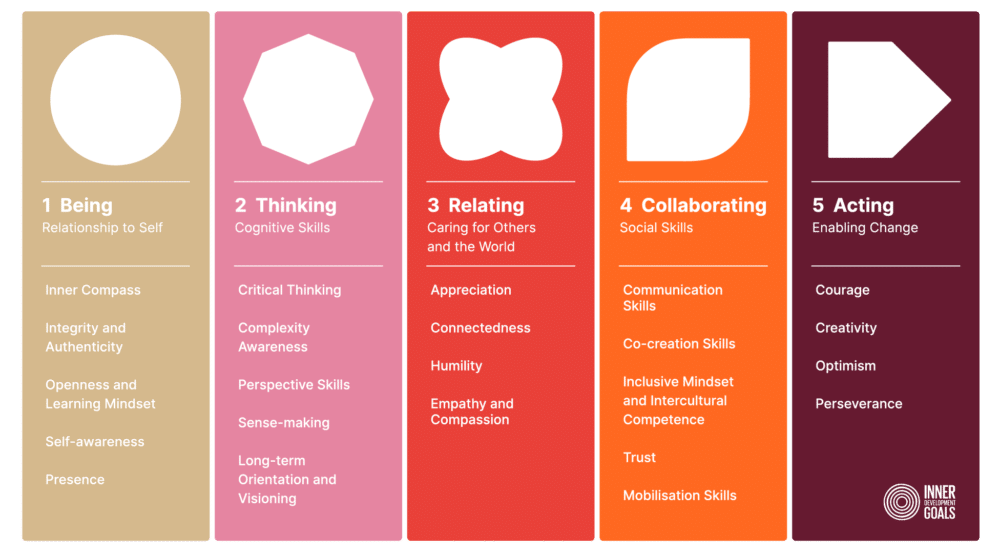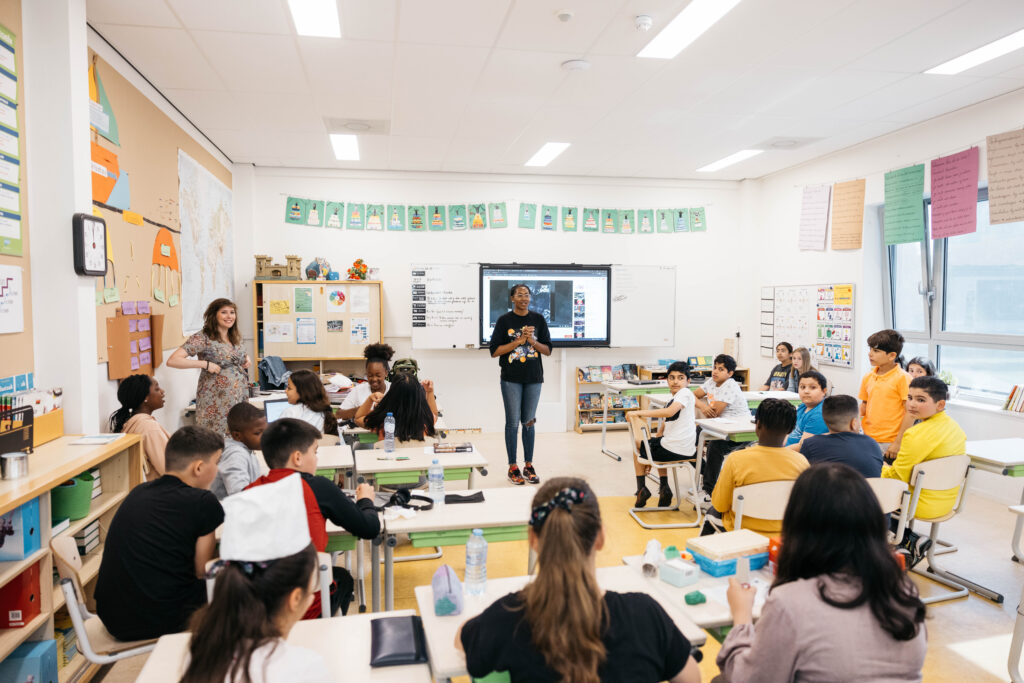Methodology and didactic principles for the toolkit
Overview
three
Phases
nine
Competences
36
Activities
Recommendations for impactful learning experiences
Start with a question in mind: Impact Question for Challenges Framing: Which challenges / problems matter most to us? Impact Question for Solutions Experimenting: How can we solve the challenge with creative solutions? Impact Question for Impact Making: What difference did we make? Did we also change (learn/grow)?
Phase 1
Challenge Framing = Understanding Problems
There are many issues and problems that are experiences in our schools, homes and communities. Assist students to select or identify challenges that are local, and relevant to your learners.
Link: Challenge Framing
Phase 2
Solutions Experimenting
Take a coaching role, set the context for learners to try out, make things, prototype, work together, and develop critical capability in self assessing and asking for feedback. This means changing their product or services based on feedback from users.
Link: Solutions Experimenting
Phase 3
Impact Making
To ensure that learners are not working in an isolated way, we want to give them the opportunity to share their projects and activities, with another class, with another school, within their communities and hopefully even taking their connections globally.
Phase Impact questions: Can your learners:
- Find out about impact-driven entrepreneurship, personal possibilities for contributing to global challenges, locally?
- Value ideas with social impact and the development of an entrepreneurial project that improves your environment?
- Identify practical examples of projects with possible social or ecological impact?
Phase Impact questions: Can your learners:
- Generate ideas with social and/or environmental value (impact)?
- Create work teams committed to making positive social change?
- Select ideas and possible solutions for their challenges, working as a team and individually?
- Name, recognize and share an impact-driven entrepreneurship project solution?
Phase Impact questions: Can your learners:
- Communicate the idea and get support?
- Explore existing networks that contribute to solving the challenge?
- Plan actions and use of resources to put ideas into action?
- Evaluate what you have learned?
Impact tools:
Survey 12- 15 years
Our methodologies and principles
Our work at IDEEC sits at the intersection of these key methodologies in order to drive impactful learning:
- Project-Based Learning (PBL): (also Problem based learning) A hands-on approach where students solve real-world problems, fostering critical thinking, teamwork, and autonomy.
- Universal Design for Learning (UDL): A method that ensures equal opportunities for all students by addressing diverse needs and removing barriers, encouraging inclusion and success.
- Human-Centred Design (HCD): A creative problem-solving process that puts people’s needs at the heart of the solution, promoting collaboration and innovation.
Together with inner development goals, these approaches and the principles of Diversity Equity and Inclusion, Competence-based, student- centered and learner-led and teacher as facilitator, which empower students to think, create, and act with purpose.
Download your own version of the IDG framework (editable):
Three Main Methodologies
Fundamental Principles
Links to Inner Development Goals
Links to Teacher self-reflection
Want to see the toolkit?
View the phases, competencies and activities in our comprehensive toolkit.




